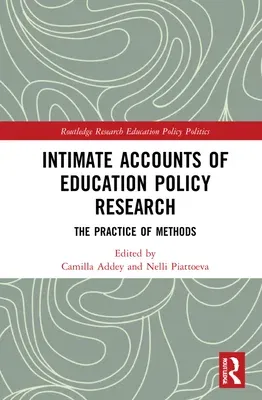What do we actually do when we research education policy and governance?
Why do we tame the messy hinterland of research into smooth accounts and
what do we lose in the process?
In this volume, distinguished scholars in education policy and
governance research discuss how the practice of methods is messy,
subjective, and provisional. They approach methodology as riddled with
tensions, doubts, troubles, and mundane decisions. Scholarship in this
book shifts from recording the methodological hinterland to putting it
to productive use as resources for thinking about the researched world
and about research itself. This methodological openness helps to examine
how research reproduces scholars' metaphysics, how research is a deeply
embodied process encompassing all senses, how scholars' concerns
interfere in the worlds they study, but also how these equally interfere
with researchers. By challenging smooth methodological accounts which
conceal the complex and provisional nature of research, this book offers
new approaches in education policy and governance research that are more
generative, insightful, and sincere.
Offering new ways of thinking about research methodologies, the book
will be of great interest to researchers, academics, and post-graduate
students in the fields of education research and education theory, as
well as social scientists interested in research methodologies more
broadly.

